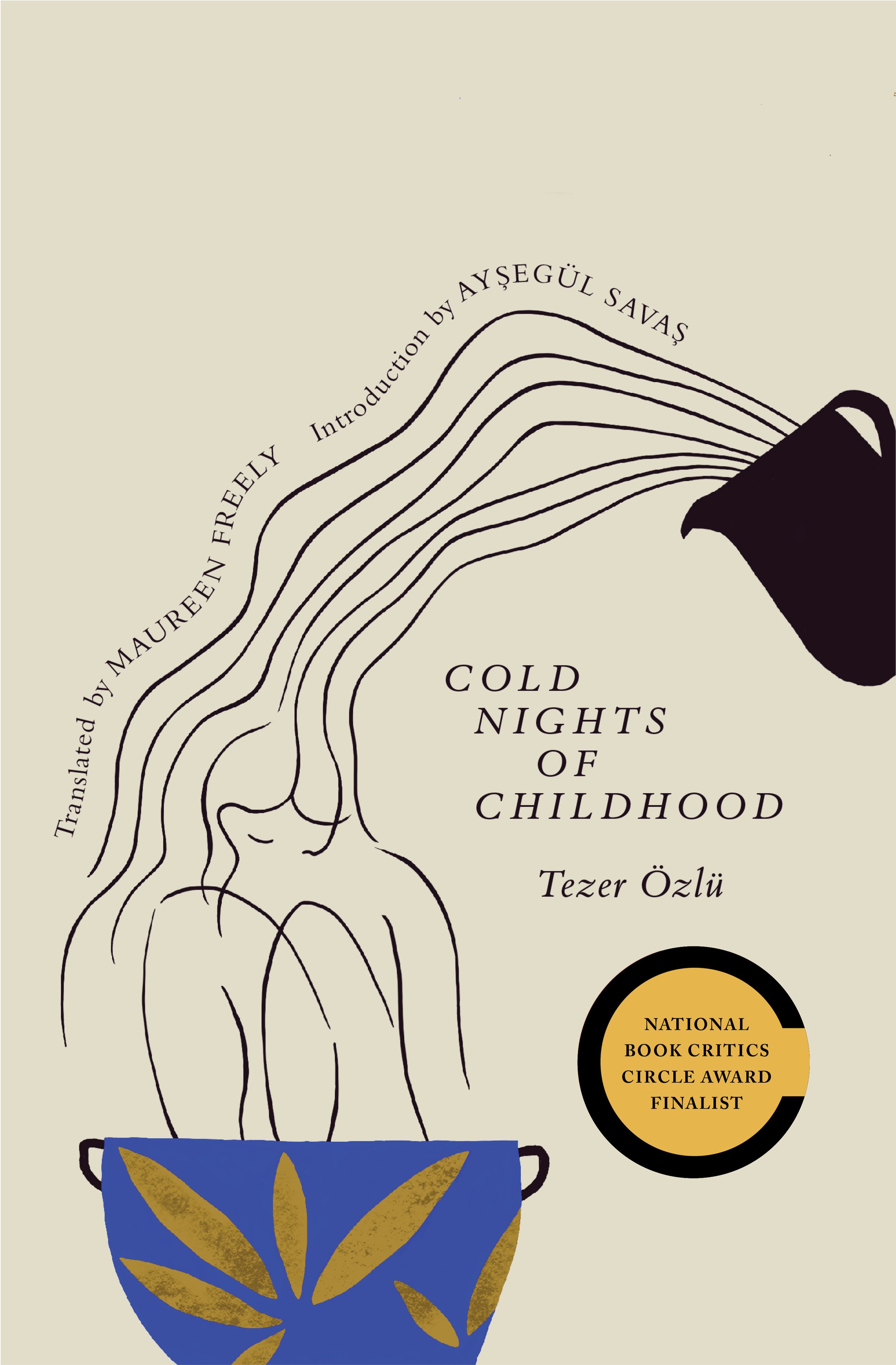On a Sentence from "Cold Nights of Childhood"
“—Ölüyorum, devrimci mücadele bensiz sürdürün,
diyorum.”
“While undergoing electroshock treatment, I can still think and feel:
‘So things have advanced to the point that they’re giving me electroshock treatment/maybe they’re giving me electroshock to make me talk again/the doctor must have come to the house/how strange it looks, that device he uses to administer the shocks/it looks just like a shoeshine man’s stool/who knows, maybe they didn’t get the current they need/the city’s current, in other words/ it’s always going up and down/and it can kill people/and now they’ve put me into an electroshock coma in my own home/do they want to make me speak/does my husband really want to know if I’ve deceived him or not/if he was, so what? So what if he wasn’t?/are they making me talk/they shouldn’t have done this to me/I have no secrets/I treated them all well, even when I was ill/I never shouted at any of them/never attacked anyone/always suffered my anguish alone/if I die, so what/ what if I die/oh but they went way over the limit with that shock/it’s making my fillings vibrate/it’s unbearable/I know people have died from electroshock treatment/people have told me/I heard this in class at the hospital/is Süm with me/she can’t be/my mother me brother my husband/I’m getting electroshock treatment but I still know they’re there/I know who this doctor is, too/soon I shall close my eyes and die/no one will bother me ever again/what do they want from me/if my life is to end with an electric shock/I’m not angry/they only want what’s best for me/can this be natural/ is it even possible to go through this and still be thinking/this could be natural too’
—I am dying, the revolutionary struggle must continue without me,
I say.
(I was never a part of a revolutionary struggle. Not during the 12th March era, and not after it, either. All I ever wanted was to be free to think and act beyond the tedious limits set by the petit bourgeoisie.)”
Translating Tezer Özlü was like walking a tightrope—like following an acrobat across that tightrope, one trembling foot at a time, while she broke all the rules of time and space but somehow never fell. Tezer the woman endured one breakdown after another during her too-short life. Time and time again, she was broken by those who took it upon themselves to cure her. But on the page, it is she who does the breaking. In the place of the smooth narrative flow that so often passes for reality, there is a mash-up of tenses, times, and places. There is, for me, the translator, the sudden loss of self. There is the imperiled body imprisoning us both.
All she wants is to be free to think and act beyond the tedious limits imposed on her. All I want is to do justice to her art. To carry it safely, and as beautifully as possible, into English. But that means living inside it first. Later on, when I’m back in my own head again, I’ll fret over the details—the untranslatable words and ambiguous phrases. The roadblocks that English grammar throws in the way of a flowing Turkish sentence. But to get there I must first have shared that living death. Endured electroshock therapy and remembered it.
In Turkish, the sentence in bold is in the second person. A literal translation of its middle section would be ‘continue the revolutionary struggle without me’. For me that lacked the urgency I hear in the Turkish, and so I went for a more emphatic wording: ‘the revolutionary struggle must continue without me’. But here (and elsewhere) I replicated Tezer’s unusual rendering of speech. She always skips to a new line to identify the speaker. The separation of speech from speaker is deliberately disorienting—one of the many tricks she uses to sweep us readers into her world.
The sentence as a whole will have a particular resonance for all who read it in Turkish. For in the aftermath of the 1971 and 1980 coups—which saw so many of Tezer’s contemporaries locked up in political prisons—electroshock torture was routine. It is always tempting at such moments to add a few words of explanation, so that the resonance carries over into English, but that would be breaking my golden rule. The text must speak for itself. If readers are left wanting to know more about the revolutionary struggle that was so brutally crushed in the darkest days of Turkey’s Cold War, I will have served my purpose.
First, though, I must navigate Tezer’s stream-of-electroshock-consciousness. This is not in any way a language challenge—as so many of Tezer’s other sentences are. It is an existential crisis. It carries with it the full force of all that came before. It runs its current through all that follows. It lights up the path of resistance. It matters, then, that the words I find to carry it into English are born in the same dark place. However much I interrogate and fine-tune my choices in later drafts, they will (for me, at least) retain that first draft’s electrical charge.


